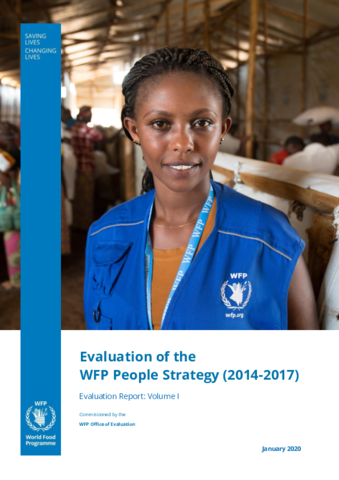
The evaluation concluded that the strategy was of good quality when it was written in that it outlined a clear vision that was relevant to the priorities of the WFP strategic plan in force at the time, was forward-looking and was coherent with other WFP policies and good people management practices. The weaknesses of the strategy were an absence of comprehensive and clear expectations as to what “success” would look like and a degree of blindness regarding gender and diversity.
As it currently stands, the People Strategy does not provide sufficient direction to enable WFP to address all of its human resource management challenges. There is an urgent need for WFP to attract, effectively use and consistently develop the skills of the best workforce possible and to do so in ways that reflect and model the United Nations system’s commitment to human rights, gender equality, diversity and inclusion.

